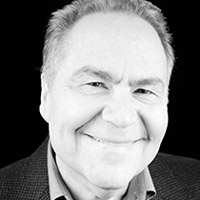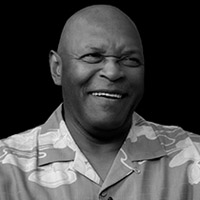Choosing a Business Entity that is Right for You

Choosing a Business Entity that is Right for You
Have you decided to venture out on an entrepreneurial limb? If yes, there is an array of business structures that you can choose from. There are different tax liabilities dependent upon which business structure that you choose. Below, we briefly explore the different entity options.
1. Sole Proprietorship-This type of business is owned by a single individual and is not incorporated. You must file an income tax return with this business [1]. The business owner is liable for the finances of the business. The business can be full time or part time and can include any type of business that the owner wants to start. However, the business cannot be a hobby or investment. An individual must keep adequate records for tax purposes. Individuals will file a form 1040 as their business income will be combined with other income. Sole proprietors are required to pay self-employment tax (Social Security and Medicare) in addition to income tax [1].
2. Partnership-This type of business is one which is owned by two or more individuals who have invested money, time and skills into the business. Partnerships do not have to pay income tax for the partnership, but they do have to file a tax return. They also take responsibility for all profits and losses. A tax return must be files, but the income tax is not paid with this return. . It is a pass through entity where profits and losses are reported on individual partner’s income tax returns. They are not employees and so should not receive a W-2; however, they must furnish copies of a Schedule K-1 by the time Form 1065 needs to be filed. “General Partners must pay self-employments tax on their net earnings from self-employment assigned to them from their partnership. Limited Partners are subject to self-employment tax only on guaranteed payments, such as professional fees for services rendered [2].”
3. Limited Liability Company (LLC)-This type of business structure is similar to a corporation and partnership. It is allowed by state statute. LLC owners are called members. Most states allow single member LLCs. There is no limit to the number of members. For tax purposes, the federal government does not recognize LLCs. The LLC must file taxes as a corporation, partnership or sole proprietorship. If your LLC has 2 or more members, you can choose to be taxed as a corporation or a partnership. If your corporation has one member, it can be taxed as a corporation or a “disregarded entity.”
4. S Corporation-This type of corporation passes income losses deduction and credit all to shareholders for tax purposes. Shareholders report flow through income and losses on their personal tax returns and are taxed at individual rates. This allows S corporations to avoid double taxation on corporate income. They are taxed for some built in gains and passive income. In order to establish an S corporation, there are several qualifications. The Internal Revenue Website states the necessary qualifications below:
- “Be a domestic corporation
- Have only allowable shareholders
- including individuals, certain trust, and estates and
- may not include partnerships, corporations or non-resident alien shareholders
- Have no more than 100 shareholders
- Have one class of stock
- Not be an ineligible corporation i.e. certain financial institutions, insurance companies, and domestic international sales corporations.[3]”
5. C Corporation-This type of business structure is funded by shareholders who exchange money or property for capital stock. Consequently, business profits are not distributed to the shareholders. Shareholders are generally not personally liable for the debts of the corporation. The profit of a corporation is taxed when earned and then taxed to shareholders when distributed as dividends. This means that it is double taxed. Corporation losses are not deductible [4].
If you are planning on starting your own business, consult with your tax advisor to make sure that the business structure that you choose is best for your needs.
Sources:
Business Structures. http://www.irs.gov/businesses/small/article/0,,id=98359,00.html
[1] Choosing a Business Structure. Sole Proprietorship. IRS. June 2008. Web. Aug. 2011.http://www.irs.gov/newsroom/article/0,,id=183918,00.html
[2] Choosing a Business Structure. Partnership. IRS June 2008. Web. Aug. 2011. http://www.irs.gov/newsroom/article/0,,id=183918,00.html
[3] S Corporations. IRS. Dec. 2010 Web. Aug. 2011. http://www.irs.gov/businesses/small/article/0,,id=98263,00.html
[4] Corporations. IRS. June 2008 Web. Aug. 2011. http://www.irs.gov/newsroom/article/0,,id=183918,00.html
—————————————————————————————————————————————————————————————————————
We hope you found this article about “Choosing a Business Entity that is Right for You” helpful. If you have questions or need expert tax or family office advice that’s refreshingly objective (we never sell investments), please contact us or visit our Family office page or our website at www.GROCO.com. Unfortunately, we no longer give advice to other tax professionals gratis.
To receive our free newsletter, contact us here.
Subscribe our YouTube Channel for more updates.

Alan Olsen, is the Host of the American Dreams Show and the Managing Partner of GROCO.com. GROCO is a premier family office and tax advisory firm located in the San Francisco Bay area serving clients all over the world.
Alan L. Olsen, CPA, Wikipedia Bio

GROCO.com is a proud sponsor of The American Dreams Show.

The American Dreams show was the brainchild of Alan Olsen, CPA, MBA. It was originally created to fill a specific need; often inexperienced entrepreneurs lacked basic information about raising capital and how to successfully start a business.
Alan sincerely wanted to respond to the many requests from aspiring entrepreneurs asking for the information and introductions they needed. But he had to find a way to help in which his venture capital clients and friends would not mind.
The American Dreams show became the solution, first as a radio show and now with YouTube videos as well. Always respectful of interview guest’s time, he’s able to give access to individuals information and inspiration previously inaccessible to the first-time entrepreneurs who need it most.
They can listen to venture capitalists and successful business people explain first-hand, how they got to where they are, how to start a company, how to overcome challenges, how they see the future evolving, opportunities, work-life balance and so much more..
American Dreams discusses many topics from some of the world’s most successful individuals about their secrets to life’s success. Topics from guest have included:
Creating purpose in life / Building a foundation for their life / Solving problems / Finding fulfillment through philanthropy and service / Becoming self-reliant / Enhancing effective leadership / Balancing family and work…

MyPaths.com (Also sponsored by GROCO) provides free access to content and world-class entrepreneurs, influencers and thought leaders’ personal success stories. To help you find your path in life to true, sustainable success & happiness. It’s mission statement:
In an increasingly complex and difficult world, we hope to help you find your personal path in life and build a strong foundation by learning how others found success and happiness. True and sustainable success and happiness are different for each one of us but possible, often despite significant challenges.
Our mission at MyPaths.com is to provide resources and firsthand accounts of how others found their paths in life, so you can do the same.
Where does Happiness Come From? | Richard Del Monte
About Richard Del Monte Richard is a CERTIFIED FINANCIAL PLANNER™, Certified Wealth Consultant, and nationally recognized expert on Families and Wealth. Richard has been featured on FOX Business News, The Wall Street Journal, New York Times, Private Opportunities Club, Private Wealth Magazine, Trust & Estates, and Family Wealth Report. A sought after speaker, he…
The Future of Health Care | McKay Thomas
About McKay Thomas Since he was in high school, McKay Thomas has been an entrepreneur. Some of his companies have been, pooltables.com, baby.com and ainda.com Currently he is the co-founder and CEO of First Opinion, a company which matches a personal doctor to to their clients that they can contact 24 hours a day.…
Attention Triggers | Ben Parr
About Ben Parr Ben Parr is an award-winning journalist, author, entrepreneur, investor and expert on attention. Through his unique experience as a leading technology writer, venture capitalist and prolific public speaker, Parr has coached dozens of young startups and Fortune 500 corporations on how to get attention for their products. He was named one…
Beyond Baseball | Vida Blue
About Vida Blue Six time All Star, 3 time world series champion, MVP and Cy Young Award winner Vida Blue is quite a Baseball legend. Listen to his first hand experiences of what it’s like to play professional baseball and what’s the legend doing today? Interview Transcript: Alan Welcome back. I’m here today…




